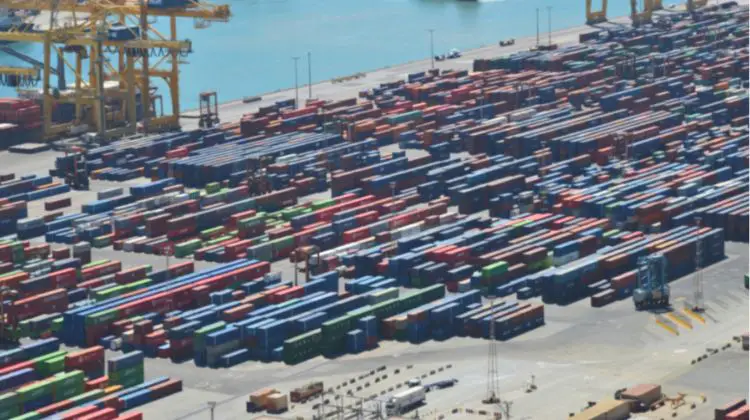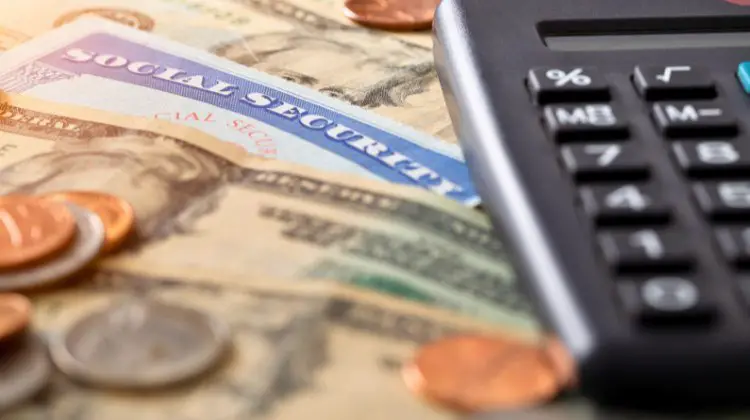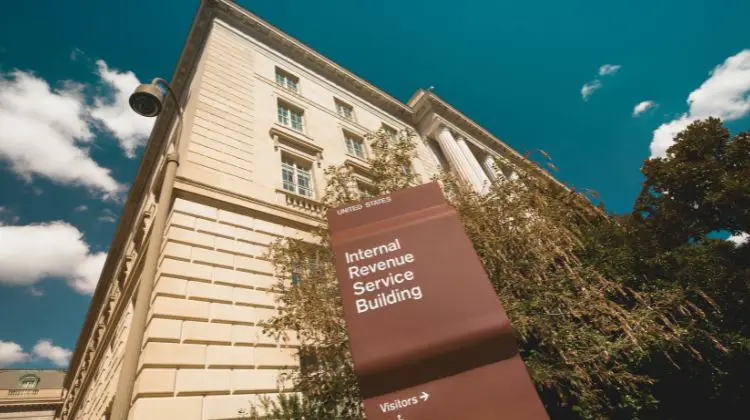As economists and policymakers debate the potential impacts of President Trump’s latest round of tariffs, concerns are growing about whether these trade measures could push the U.S. economy into a recession from tariffs. With “Liberation Day” looming on April 2nd, when new reciprocal tariffs are set to take effect, financial markets have been rattled and businesses are bracing for higher costs. But what exactly is the connection between tariffs and economic downturns, and how worried should we really be?
The relationship between trade barriers and economic growth is complex. History shows that aggressive protectionist policies can have serious unintended consequences. Tariffs can set off a chain reaction that ripples through the entire economy.
Table of Contents:
- How Tariffs Can Lead to Economic Contraction
- Historical Precedent for Recession from Tariffs
- Current Recession Risks from Tariffs
- Navigating Financial Uncertainty: Tips for Homeowners and Savers
- The Role of Monetary Policy
- Political and Geopolitical Factors
- Conclusion
How Tariffs Can Lead to Economic Contraction
When a country imposes tariffs on imports, it essentially adds a tax that makes those goods more expensive. While the stated goal is often to protect domestic industries, the effects can quickly spread.
Higher Costs for Businesses and Consumers
As import prices rise, companies that rely on those goods for their supply chains face higher costs. They may absorb some of this, but often pass price increases on to consumers.
This can lead to reduced consumer spending power as household budgets are squeezed. It also lowers demand for goods and services across the economy and decreases business investment as companies face uncertain conditions.
A University of Michigan survey showed consumer sentiment in March reached its lowest level since November 2022, with inflation worries dragging down optimism. This declining confidence can become a self-fulfilling prophecy if it causes people to pull back on spending. This situation can impact various areas of personal finance, including the use of credit cards and personal loans.
Retaliation and Escalation
When the U.S. imposes tariffs, other countries often respond in kind. This tit-for-tat can quickly spiral, leading to reduced exports as other nations tax American goods.
This situation may also lead to job losses in export-dependent industries and further economic uncertainty that chills investment. The escalating trade war can affect small businesses significantly.
We saw this play out during previous rounds of tariffs, with countries like China and the EU targeting politically sensitive U.S. exports like soybeans and bourbon.
Market Volatility
As investors try to predict winners and losers from shifting trade policies, it can lead to stock market swings that erode wealth and confidence. Tighter financial conditions arise as lenders become more cautious, impacting personal loans and other credit products.
Decreased business and consumer spending may follow these trends. The S&P 500 is down over 6% in March alone as tariff fears mount. Prolonged market turmoil could tip the economy into recession.
Historical Precedent for Recession from Tariffs
While every situation is unique, past trade wars offer cautionary tales about how tariffs can contribute to economic downturns.
Smoot-Hawley Tariff Act of 1930
This legislation raised tariffs on over 20,000 imported goods and is widely credited with deepening and prolonging the Great Depression. The Smoot-Hawley Tariff Act led to a 66% decline in global trade between 1929 and 1934.
This act caused widespread retaliation from trading partners, and severe job losses in export-oriented industries. While our economy today is very different, it illustrates how protectionist policies can backfire dramatically. The Act serves as a warning about growing risk to the economy.
2018-2019 U.S.-China Trade War
More recently, the tit-for-tat tariffs between the U.S. and China took a measurable toll. The U.S. GDP growth slowed from 2.9% in 2018 to 2.3% in 2019. Additionally, manufacturing activity contracted for the first time in 3 years.
Farm bankruptcies rose 20% as agricultural exports plummeted. While a full-blown recession was avoided, it demonstrates how even limited trade conflicts can drag on growth. This recent event underscores how easily a trade war escalates.
Current Recession Risks from Tariffs
As we brace for potential new tariffs, many economists are sounding alarms about recession risks. Goldman Sachs recently raised its recession odds in the next 12 months from 20% to 35%, citing tariffs as a key factor.
Some key concerns include:
Inflation Pressures
With inflation already running hot, additional tariffs could push prices even higher. Goldman now forecasts core inflation reaching 3.5% by year-end, up from 2.8% previously.
The Fed may potentially delay rate cuts to combat price pressures. This could create a dangerous scenario where growth stalls but inflation remains elevated. This environment can particularly impact those with bad credit, limiting their financial options.
Supply Chain Disruptions
Many industries are still grappling with pandemic-related supply issues. New tariffs could force companies to rapidly shift suppliers or production. They may also lead to shortages of key components and materials.
Tariffs could further strain already-fragile supply chains. For small business owners, this can be a significant challenge. They may need to explore options like debt consolidation loans to manage their finances.
Global Growth Slowdown
With many major economies already teetering, an escalating trade war could be the tipping point. The IMF has warned that tariffs could reduce global GDP by up to 0.8% in 2025.
The economy faces a potential drag on economic growth, affecting everything from the stock market, especially the tech-heavy nasdaq composite, to the average consumer’s checking account and savings account options.
| Potential Impact | Best Case | Worst Case |
|---|---|---|
| U.S. GDP Growth 2025 | 1.5% | -0.5% |
| Inflation Rate | 3.0% | 4.5% |
| Unemployment Rate | 4.0% | 5.5% |
Navigating Financial Uncertainty: Tips for Homeowners and Savers
Given the current economic climate, here are some proactive steps homeowners and savers can take to safeguard their financial well-being:
- Review your budget: Identify areas where you can reduce spending and increase savings to build a financial buffer.
- Assess your investment portfolio: Consider diversifying your investments to mitigate risk during market volatility.
- Consider refinancing your mortgage: If interest rates are favorable, refinancing can lower your monthly payments.
- Build an emergency fund: Aim to have at least three to six months’ worth of living expenses in a readily accessible savings account.
- Monitor your credit score: A good credit score is essential for securing favorable loan terms. Consider using credit monitoring services.
- Stay informed: Keep abreast of the latest market news and economic developments from reputable sources like CNN political briefings and CNN audio podcasts.
- Consult a financial advisor: Get personalized advice to help you align your financial strategy with your goals.
The Role of Monetary Policy
The Federal Reserve’s monetary policy decisions play a critical role in either mitigating or exacerbating the economic effects of tariffs. The Federal Reserve needs to carefully balance controlling inflation with supporting economic growth.
Rate hikes could curb inflation but also slow down the economy, while rate cuts could stimulate growth but risk further fueling inflation. It’s a delicate balancing act.
Potential Policy Responses
- Interest Rate Adjustments: The Fed may adjust the federal funds rate to influence borrowing costs and economic activity.
- Quantitative Easing (QE): In times of severe economic stress, the Fed may implement QE to inject liquidity into the financial system.
- Forward Guidance: Clear communication from the Fed about its intentions can help stabilize markets and manage expectations.
Political and Geopolitical Factors
The global political landscape can significantly impact the effectiveness and consequences of tariffs. Trade negotiations, geopolitical tensions, and international relations can all play a role in how tariffs affect economies.
Trade Negotiations and Agreements
- Bilateral Agreements: Negotiating individual agreements with key trading partners can help reduce trade barriers and promote economic cooperation.
- Multilateral Agreements: Participating in broader trade agreements like the World Trade Organization (WTO) can establish consistent rules and regulations for international trade.
- Managing Geopolitical Risks: Diplomatic efforts to reduce tensions and promote stability can prevent trade disputes from escalating into more significant economic conflicts.
Conclusion
While it’s impossible to predict with certainty, the risks of a recession from tariffs are real and growing. The complex interplay of higher costs, retaliatory measures, and market turmoil could create a perfect storm that pushes the economy into contraction. Policymakers and business leaders will need to tread carefully to avoid the worst-case scenarios.
As we approach “Liberation Day,” all eyes will be on how extensive the new tariffs are and how trading partners respond. The coming months will be crucial in determining whether we can thread the needle between protecting domestic industries and maintaining economic growth.








Reader Interactions